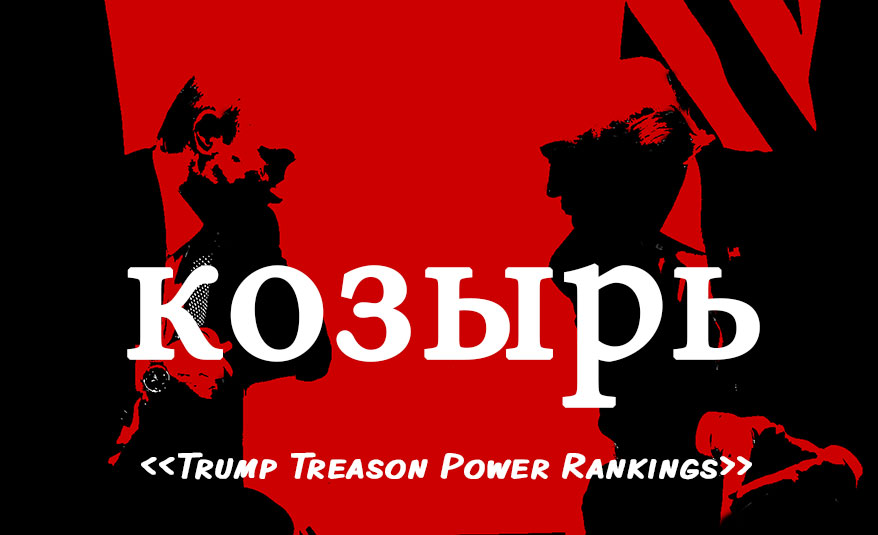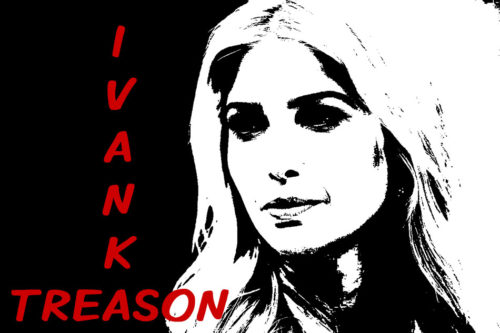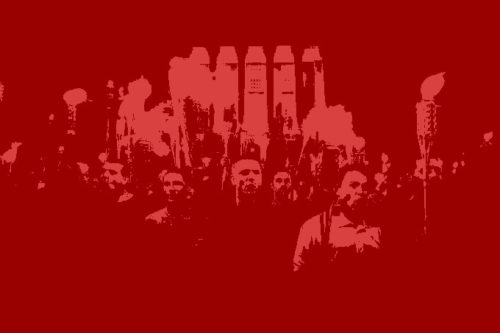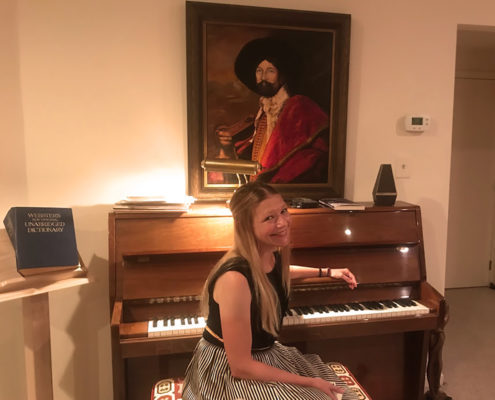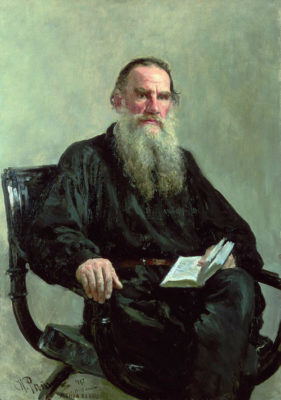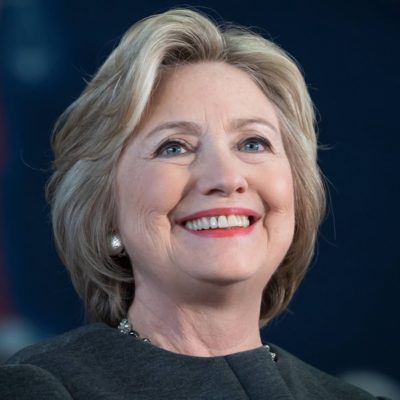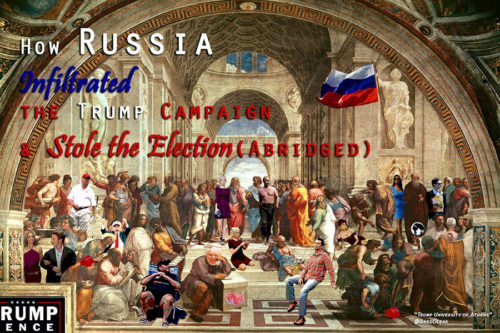
THE UNABRIDGED STORY OF TRUMP/RUSSIA is long and complicated—like a Tolstoy epic, but written by the content creators at the National Enquirer. The dramatis personae alone runs to half a dozen pages. We may never know the full extent of it. So this is by no means an exhaustive examination.
The best way to explain Trump/Russia, it seems to me, is to focus on one key player (Jared Kushner) and one key moment in time (March-July, 2016). That was when the Faustian bargain was made between the Trump campaign and Russia—when it was decided that Donald Trump would accept help from Vladimir Putin in order to win the White House.
This account, drawn entirely from mainstream news reporting, is an attempt to shape what seems like a slew of disparate stories into a cohesive narrative.
This is how we got to where we are.

Manafort = Bond villain
I. The Count
Jared Kushner was living large two years ago. He was young and fabulously wealthy. His wife was gorgeous and well known. He’d acquired one of the hippest New York newspapers, the Observer. He was a Millennial one-percenter, a rich Manhattan Democrat, enjoying his lot in life. He was not interested in politics, much less politics involving Vladimir Putin’s Russia.
Then, in November of 2015, he formally joined his father-in-law’s seat-of-the-pants campaign—and all of that changed.
Fast-forward to the following March. Jared Kushner had been an active member of the Trump campaign for almost five months. His work with social media had been a smashing success, impressing his Luddite father-in-law. After he took over, “the Trump campaign went from selling $8,000 worth of hats and other items a day to $80,000,” according to the profile at Forbes, “generating revenue, expanding the number of human billboards–and proving a concept.”
Moreover, by March, Trump had sewn up enough delegates that the nomination looked like a sure thing. Maybe it wasn’t 50/50 he’d win the White House that November, but a victory was still in the realm of possibility.
But then reports trickled out about unhappy delegates, a disgruntled GOP establishment, and the unthinkable prospect of a contested convention that July. Could Ted Cruz or John Kasich somehow pull the chair right out from under Trump?
So Kushner did a little research on contested conventions, and learned that the last time that had happened to the GOP was back in 1976, when President Ford managed to stave off a challenge by Ronald Reagan. (This was ancient history to him; Kushner was not even born until 1981.) The man in charge of Ford’s effort back in ’76 was a young Republican strategist and lawyer named Paul Manafort, who later brokered the conventions for George H.W. Bush in ’88 and Bob Dole in ’96.
Not only did Manafort have truck with the GOP establishment, but he was uniquely qualified to lead Trump to the nomination. That Manafort owned an apartment in Trump Tower, and was thus a known commodity to Candidate Trump, was an unexpected bonus (we’ll assume it was unexpected). So on March 28, 2016, at the urging of Kushner, Paul Manafort joined the Trump campaign.
Although Manafort had not worked on a U.S. race in 20 years, the consensus in the media was that this was a smart hire. Almost certainly, Kushner was impressed by the guy. Nicknamed “The Count” during his days as a convention broker, on account of his charming manner, the 67-year-old Manafort was well-educated, worldly, independently wealthy, and smart—in stark contrast to the provincial mouthbreathers comprising most of Trump’s inner circle, especially loutish then-campaign manager Corey Lewandowski.
What Kushner did not realize (let’s again give him the benefit of the doubt) is that during those two decades spent away from convention-brokering, Paul Manafort had been spending most of his time with a host of unsavory characters: despots, mostly, from foreign dictatorships—and, more recently, a pair of Russian oligarchs, Oleg Deripaska and Dmytro Firtash. His most recent client, Viktor Yanukovych, the former president of Ukraine, was a particularly noxious fellow. All three men had very close ties to Vladimir Putin.
Kushner did not know that Manafort had been paid many millions of dollars by Yanukovych, illegally. He did not know that Manafort was in big financial trouble, and that Russian intelligence has made a cottage industry of “turning” powerful Americans with money problems. He had never heard the word kompromat. He did not know that Manafort was, in effect, an agent of Vladimir Putin.
So when the charming, debonair, non-mouthbreather Paul Manafort suggested that he, Kushner, take a call with Sergei Kislyak, Kushner did so. And he was glad he did. Kislyak, like Manafort, was smart and charming and funny.
And when Manafort suggested that they move the big foreign policy speech on April 28 from the National Press Club to the Mayflower Hotel, so that Kislyak and some of his cronies could attend, Kushner not only agreed, he helped organize the event. That late April night, after a cocktail party at which Kislyak hobnobbed with virtually every key Trump campaign figure (Sessions; Donald Trump, Jr.; neo-Nazi creeper Stephen Miller; J.D. Gordon; oil bigwigs and Russia apologists Richard Burt and Bud McFarlane; Manafort; Kushner; and Trump himself), Trump in his speech promised a “good deal” for Russia while dutifully refraining from any criticism of Putin.
This all seemed on the up and up to Kushner. He was following the lead of Manafort, after all, whom the Republican establishment still respected, and not some rogue idiot like Lewandowski.
What Kushner also may not have realized is that Kislyak was a spymaster in addition to being an ambassador, and that already, he was being recruited.
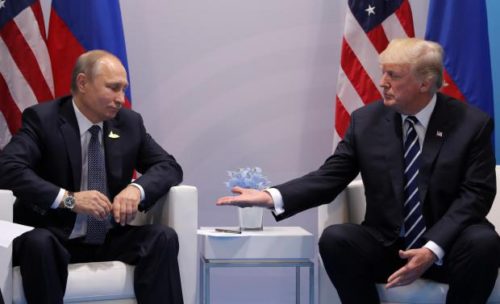
II. The Autocrat
Russia is an autocracy. Its elections are a sham, its government riddled with corruption, its human rights record deplorable. The purpose of its lousy economy, almost exclusively based on petroleum, is to enrich the despotic Vladimir Putin and his cronies, who are collectively called oligarchs.
A vast segment of Russia’s total wealth is in the hands of these oligarchs, much of it gained through corrupt means, much of it secreted away overseas, in quasi-Western places like Cyprus. The sanctions imposed on Russia by Barack Obama target the oligarchs directly, which is why they are so brutally effective—and why Putin, who may be the world’s richest man, wants them lifted at all costs. For Putin to continue to stay in power, he needs a stronger economy. He also needs to use propaganda to paint the West as just as weak, corrupt, and authoritarian as Russia. The sanctions hurt him badly on both fronts.
A Donald Trump presidency, as unlikely as it seemed in early 2016, would be a godsend to Putin. Trump was a man with the heart of an autocrat, an easily-flattered weakling who would screw up America’s standing in the world, and who, crucially, would almost certainly lift the sanctions. Here was a man who already openly admired Putin, who was actively trying to start a massive real estate project in Moscow…and whom Putin could easily blackmail. Kompromat had already been collected on Trump during his visits to Moscow and St. Petersburg in 2013, in the form of strange sex tapes; the campaign was sure to produce more lurid dirt.
To achieve his aims, Putin enlisted his intelligence service, the FSB (formerly the KGB), to compromise key Americans and turn them into pawns in his own little chess game. Usually this involved money: one of his oligarchs would do a shady business deal, or help finance a campaign illegally, and boom, an American was in his thrall. One of his compromised American assets, the general Mike Flynn, had already penetrated Trump’s inner circle. Another, Carter Page, had ingratiated himself into Trump’s foreign policy adviser team.
But on March 28, 2016, Vladimir Putin could not believe his luck. The Trump campaign, more or less on its own, had taken one of his most compromised American assets, the Yanukovych consultant Paul Manafort, a man who was almost comically in Russia’s back pocket, and inserted him directly into the campaign!
Putin already had dirt on Trump. He already had Flynn in his pocket. He already had Carter Page listed as a foreign affairs adviser for the campaign, as well as the likes of Felix Sater in his thrall. He had the Green Party’s Jill Stein, unwittingly or not, poised to siphon votes from Hillary Clinton on the left. He’d already hacked into both the DNC and RNC servers, and had emails of both to release through Wikileaks, which Russia was now supporting, at the moment of his choosing. He knew he could unleash his army of social media “bots” to manipulate the election in Trump’s favor…but he needed help on the inside. Manafort would provide that inside help.
All that was needed, as Putin saw it, was to turn Jared Kushner. If he had Trump’s son-in-law, the presumed brains of the operation and the director of Trump’s social media operation, he was in like…well, like Flynn.
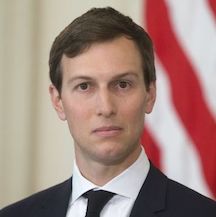
III. Boy Wonder
Jared Kushner was impressed. The phone call with Sergei Kislyak had gone well, and meeting him in person at the Mayflower had been even better. The ambassador was funny, charming, insightful, and eager to help. “We really want to improve Russia’s relations with the United States. Think of the good we could do in Syria, where people are suffering! Whatever Russia can do to help your father-in-law take the White House, you can count on us!”
Kislyak also seemed to know about his own company’s financial pickle. See, Kushner needed another $1 billion in loans in order to retain ownership of 666 Fifth Avenue, and stave off possible bankruptcy. American banks had exactly not been lining up to help, but the ambassador hinted that banks in Europe might be more sympathetic to his predicament.
Meanwhile, Manafort was giving him excellent advice on the social media front, steering him and his tech expert Brad Parscale to a British firm, Cambridge Analytica, which in less than a week was already making massive inroads. Per Forbes:
Kushner’s crew was able to tap into the Republican National Committee’s data machine, and it hired targeting partners like Cambridge Analytica to map voter universes and identify which parts of the Trump platform mattered most….Kushner built a custom geo-location tool that plotted the location density of about 20 voter types over a live Google Maps interface.
Before Manafort came aboard, Kushner never thought Trump could pull it off. But now that he was in such capable hands? The idea of President Trump was not so far-fetched. He’d come this far, staked his own reputation. Unlike everyone else at the campaign, he liked Hillary Clinton well enough. But he wanted to win this thing.
So when his brother-in-law, the doltish Donald J. Trump, Jr., sent him an email about a meeting with a Russian attorney who promised incriminating information on Hillary Clinton, Kushner’s interest was piqued. True, he wished Junior had not sent such a thing in email form. He wished his colleagues were more careful. It would be bad optics if this got out. But if this attorney could deliver what she promised, it might be a game-changer.
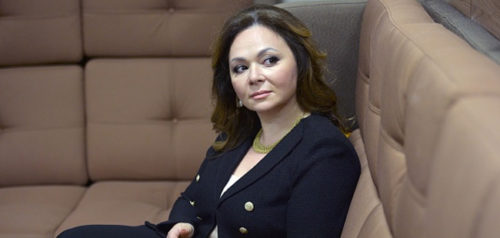
IV. The Adoptions Attorney
One thing made Jared Kushner nervous: the people Trump favored tended to be loudmouths. Corey Lewandowski, for example. Junior. Kellyanne Conway. And of course Trump himself. If he were going to entertain the idea of working with the Russians, he needed to be able to trust that his comrades would keep their mouths shut. Loose lips, dot dot dot. He also had to make sure not to leave a paper trail, if these meetings were to continue. Sending an email, he decided, was an unwise thing for Junior to have done.
He took these concerns to Manafort, who agreed, but assured him that the meeting would be okay to attend. How could they know what the attorney would say? What was important, however, was to keep Trump himself away from the gathering. It was bad enough that he knew about it at all. Given that the meeting was to take place at Trump Tower, and that Trump would be in the building, right down the hall, keeping him away was a tall order.
“He can call in if need be,” Manafort said, “but he can’t be in the room.” Kushner agreed. Manafort further suggested that they bring Reince Priebus, the chair of the RNC, to Trump Tower to babysit Trump while the meeting took place—to mitigate the temptation for him to crash the meeting. Kushner thought this was legit genius.
The fateful meeting took place on the afternoon of June 9, 2016. In attendance were Rob Goldstone, a British music publicist who used to write for the tabloids; Natalia Veselnitskaya, a Russian attorney; two Russian representatives of Trump’s friend Aras Agalarov; and a Putin-picked translator. After some pleasantries, Veselnitskaya went on a long tirade about adoptions: apparently some U.S. law, the Magnitsky Act, was preventing Americans from adopting Russian children. Her arguments were passionate. Then one of the men piped up, mentioning some amazing way a Russian tech company could “weaponize” social media against Hillary Clinton. All they needed was more information about exactly where and how to do so—information Kushner was intimately acquainted with.[1. Nota bene: This detail is speculation on my part, although Mueller’s investigators have speculated along similar lines.]
Were the Russians proposing some sort of quid pro quo without explicitly saying so? Kushner glanced at Manafort, who was fiddling with his phone; he, Manafort, seemed to already know what was going to be discussed. Junior was saying something with much bluster and no meaning. Kushner decided that the Russians did indeed have something worthwhile to offer, but if word of this ever leaked out, he would personally hang for it. The rest of his crew were blithe about legal risks, but his father had gone to prison; Kushner would not make the same mistake. So he quickly excused himself.
An hour later, after the Russians left, Manafort didn’t give Donald Trump the full details. He only told him what to say next: “Hit Hillary about the missing emails. Hit her hard. Don’t stop. People don’t like her, people don’t trust her, and the email thing confirms their suspicions. That private email server is going to give you the White House.”
Trump took to Twitter and tweeted:
This was the first mention of 33,000 “missing” emails. It would not be the last.
Kushner, meanwhile, knew that such an operation would have to be done in secret. He set about dreaming up ways to keep the dialogue with the Russians open without the press—or, worse, the Democrats—finding out.
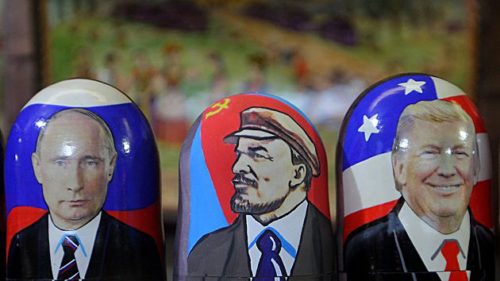
V. All In
The capabilities of the Russian cyber agents was astonishing. Given the proper data, they could use social media to hammer home whatever narrative they wanted to promote, and make sure that the only ones who saw were the micro-targeted audience. It was like a turbo boost on what Kushner’s people were already doing. It was like fixing the 1919 World Series.
After the meeting, Kushner knew he’d need the Russians to win the election. Every subsequent move he made aimed to achieve that result. On June 21, the mouthbreather Lewandowski was fired as campaign chairman and replaced by Manafort. Manafort immediately arranged a VIP meeting on the eve of the Republican National Convention, the primary purpose of which was to soften the party’s platform on Russian involvement in Ukraine—a symbolic gesture, perhaps, but the symbolism was clear: Republicans heart Russia. That this was the ONLY substantive change made to the 60-page platform is telling.
The reclusive Kushner, meanwhile, sought out secret ways to communicate with the Russians. His audacious proposal of using the Russian embassy as a backchannel was so fiendishly clever that it shocked even Kislyak. And when he met with Kislyak and other Russians, he did his best to do so in private, whisking his guests into Trump Tower via private entrances (perhaps through the offices of Carter Page, which were in the building right next door, conveniently accessible without going through the TT lobby).
Was it worth lifting some sanctions on, basically, his and his father-in-law’s indirect creditors, in exchange for all that help with the election? Of course it was. And the beauty part was, because of the clandestine nature of the internet, it would be impossible to say for sure whether Russian hackers were involved. Oh, the intelligence agencies may say so, but this was complicated stuff. Who would the American people believe, Washington spies or “straight shooter” Trump?
Ever the businessman, Kushner never forgot about his own financial pickle. So it was that in October, he secured a nick-of-time $285m loan from Deutsche Bank, staving off the collapse of his family’s company. He’d need more, a lot more, in another year, but if he was consigliere to the most powerful man alive, he could figure that out later…
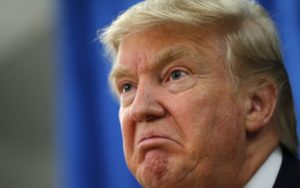
VI. End Notes
The story of Trump/Russia is really the story of Jared Kushner, the only player in the Trump camp in June of 2016 with the brains and the computer savvy to make proper use of the Russian hacking operation.
At some point—probably under the influence of Russian asset Paul Manafort, whose involvement in the campaign was a fluke of the contested convention—Kushner decided that the White House, and all the power and prestige that promised, was worth coordination with Putin and the FSB.
Maybe he didn’t realize what he was doing was illegal. Maybe by the time he did, it was too late to turn back. Maybe this version of events is too sympathetic to Kushner, and that he was on board well before the spring of ’16.
Whatever the case, the Trump team comprised those who came on board with deep and in many cases illicit ties to Russia (Manafort, Flynn, Sessions, Michael Cohen, Steve Bannon, Page, and Trump himself), and those who were clean when they signed on (Priebus, Mike Pence, Paul Ryan, Mitch McConnell, Devin Nunes, etc.) and only became complicit later. But make no mistake: they ALL became complicit. They ALL chose to accept aid from Moscow. They are ALL traitors to our country.
(One of the reasons Congress has bent over backwards to scuttle the Russia investigations is because its Republican members are terrified that their own crimes, lesser though they may be, will be exposed. A lot of rubles were pumped into various campaigns in 2016.)
Kushner may have joined the conspiracy innocently, but by Election Day, he had become the linchpin of the entire treasonous operation. Whatever his own denials, there is good reason that the active investigations all regard him as a person of interest.
At some point, Jared Kushner will have to choose between protecting his father-in-law and saving his own skin. And that is the moment when Trump will fall.Save
